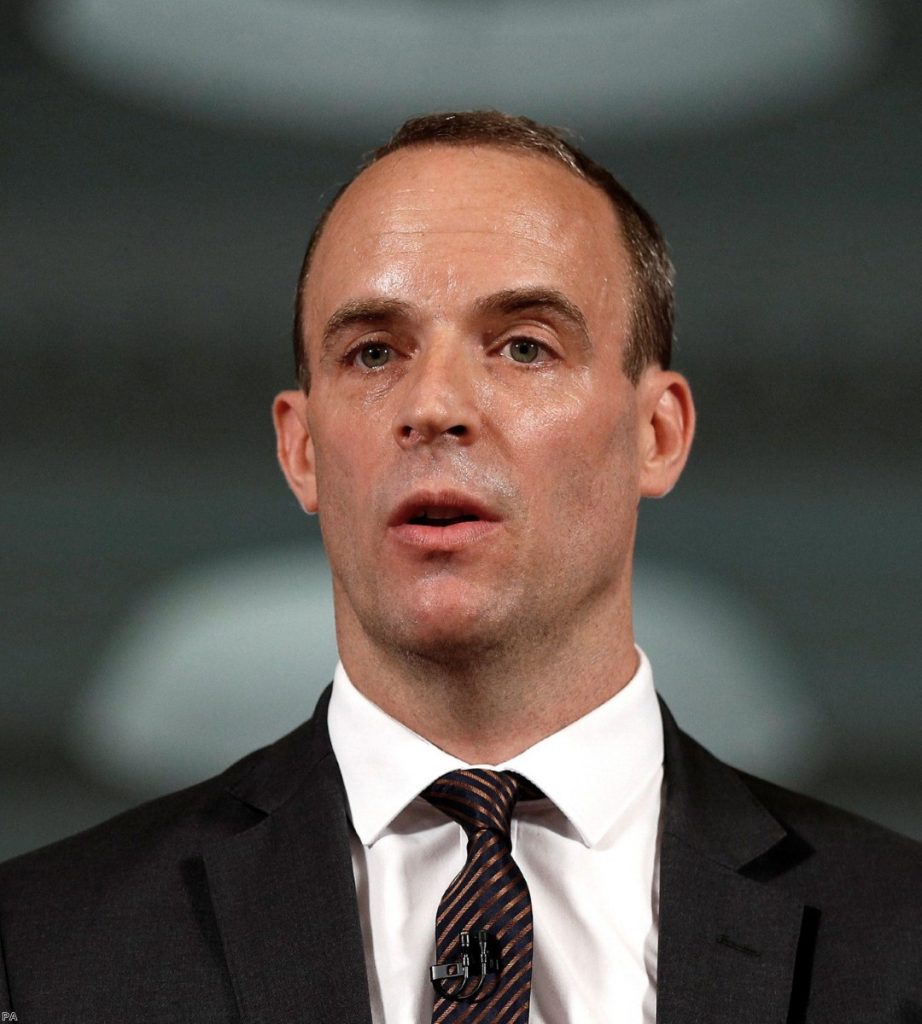Deputy prime minister and justice secretary Dominic Raab has defended the government’s Plan B restrictions and defended criticism of the booster jab rollout speed.
He told Sky News this morning that while “we don’t know the precise figures” on Omicron, “we do know that there has been an increase. And above all, we are concerned about the rate of transmission. The positive side is that we do believe and again, the information on Omicron is still sketchy, but if people get this jab, they’re over 70% protected.”
He went on: “We don’t know the full severity. What we do know is that the rate of transmission is so rapid, that even if the severity is relatively low, compared to other variants that we’ve seen, just because of the numbers, we need to take action now, which is what the government is doing today, I believe with a targeted proportionate approach
New modelling from the UK Health Security Agency suggests Omicron is causing around 200,000 new infections a day.


He told BBC One’s Breakfast programme that we are in a “Very different position than last year” and that people “can enjoy their Christmas with loved ones.”
He told Times Radio that provisions for ramping up restrictions “are always discussed but we have got plan B, that’s what we think is required over the Christmas period.”
When quizzed over the latest hospitalisation figures for Omicron, Mr Raab told BBC Breakfast: “I know we have had one death, I think we’ve got 9 people who are in hospital with it.” However he told Sky News earlier that 250 people were hospitalised with the variant.
When asked about why many people found issues booking the booster jab, he explained that capacity would be “ramping up” from Wednesday, and that walk-in clinics could also provide the third dose without an appointment.
“We can’t force people… we are strongly incentivising them,” he said regarding whether people would receive the third dose before 2022.
When asked about today’s vote on Plan B restrictions which over 70 Conservative MPs have said they will vote against, Raab said he welcomed “debate” but that the restrictions were a “targeted and balanced approach…just while we ramp that booster jab up” and before the “full severity” of Omicron is known.
In response to ongoing questions regarding the unavailability of lateral flow tests on the government website yesterday, he stressed that there were no supply issues but that the “problem is the delivery of it.”
He was also asked about the ministry of justice’s proposed changes to the human rights act, which Raab has previously said will ensure that the British Supreme Court calls the shots on UK rights by making clear in legislation that they base their determination on UK laws and precedence, rather than the European Court of Human Rights.
British courts already decide to disregard the views of Strasbourg if they have legal justification to do so.
“We can strengthen our tradition of liberty but add some common sense,” Raab explained.
He referred to freedom of speech and trial by jury as essential rights throughout British history, but argued that there had been an “elastication of human rights, which damage their credibility.”
He highlighted how deportation orders had been overturned when foreign criminals had claimed their right to family life, something these new proposals would reject.
“We have seen the goalposts on human rights shift,” complaining that any changes made “should be decided by elected lawmakers”.
A commitment to incorporate the European Convention of Human Rights into domestic law was part of the 1997 Labour Party manifesto. After that year’s General Election, a Human Rights Bill was put before Parliament, and the Human Rights Act became law in 1998, allowing human rights to be upheld by UK courts.












